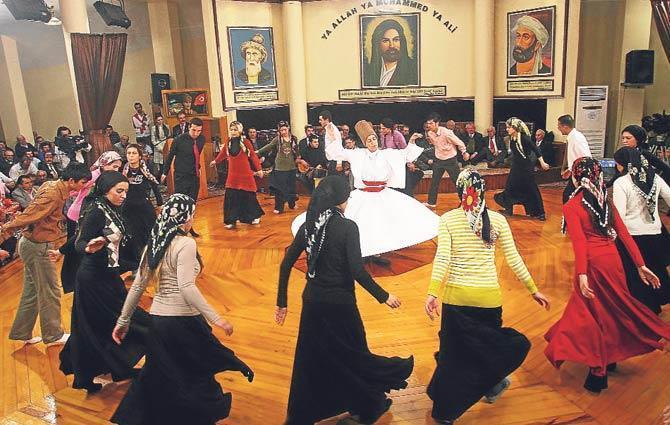
The former chairman of the Alevi Bektaşi Federation, an umbrella organization of the Alevi community in Turkey, has criticized references of cemevis in the latest curriculum presented by the Education Ministry, which do not describe cemevis as a house of worship.
“Although it has been clarified by the European Court of Human Rights [ECHR] that a cemevi is a house of worship, the curriculum goes against the law and freedom of belief by ignoring [its description],” Fevzi Gümüş told daily Cumhuriyet on Jan. 23.
The ministry’s latest curriculum guidelines simply define a cemevi as a place “where cem rituals and customs are practiced.”
An updated version of Turkey’s national school curriculum also stirred controversy last year when it emerged that it had left out teaching of evolution and added in the concept of “jihad” as part of Islamic law in books.
Gümüş said the biggest change in this year’s curriculum has been in religion classes.
“This change of curriculum has been done in line with the [Directorate of Religious Affairs’] Diyanet’s long-time antagonistic attitude towards Alevis,” he said.
“Only a curriculum prepared by the Diyanet could turn out like this,” Gümüş added.
Saying Turkey’s Alevi community has long called for compulsory religion classes to be removed from the curriculum, Gümüş said such classes “go against the secular formation of the constitution.”
“Alevis will continue their fight until they are considered equal citizens,” he vowed.
Alevis, often described as adherents of a “liberal” form of Anatolian Islam, conduct religious practices distinct from the country’s Sunni majority and are thought to make up around 15 or 20 percent of the population.
In November last year concerns were stirred after red crosses were painted by unknown assailants on the front doors of 13 homes where Alevi live in the Cemal Gürsel neighborhood of the eastern province of Malatya.
In the same month in Istanbul, unknown assailants attacked a cemevi in the Sultangazi district and attempted to set the building on fire.
On Sept. 20, 2017 an Istanbul court ordered the Interior Ministry to pay compensation amounting to 734,162 Turkish Liras ($209,000) over the killing of Uğur Kurt, who was shot by police outside a cemevi during a funeral ceremony in 2014. Kurt was killed by a bullet fired from police officer Sezgin K.’s weapon on May 22, 2014, while he was attending the funeral of a relative at a cemevi in Istanbul’s Okmeydanı district.